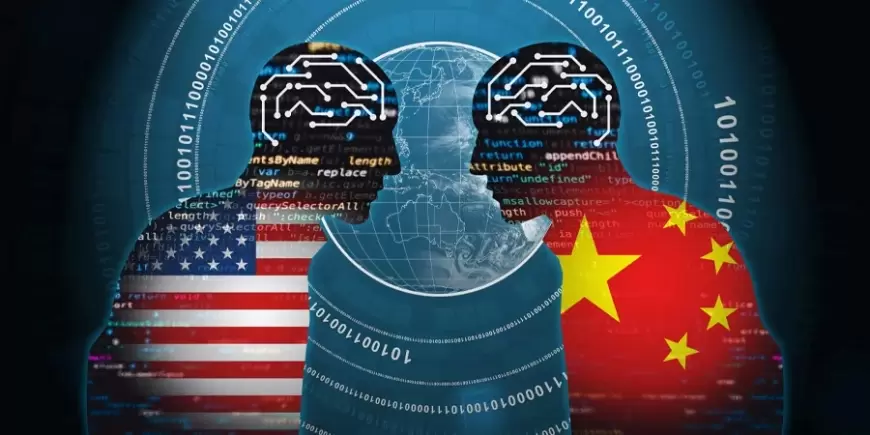US-China AI Competition Intensifies: A Battle for Technological Supremacy
The rising rivalry between the US and China in the AI sector as they compete for technological leadership and worldwide influence.

The rivalry between the United States and China extends beyond economic and geopolitical spheres into the realm of artificial intelligence (AI). Both superpowers are engaged in a fierce competition to lead the world in AI development, with significant implications for technological supremacy and global influence.
The Current Landscape:
In the escalating AI arms race, the US and China are deploying various strategies to gain a competitive advantage. From fostering AI talent to securing vital resources, each nation is determined to outpace the other in this critical frontier of innovation.
US Dominance in Generative AI:
The United States currently holds a commanding lead in the development of generative AI systems, such as large language models (LLMs). Companies like Nvidia play a pivotal role in advancing AI technology, with export restrictions on high-performance semiconductors acting as a barrier to China's access to cutting-edge AI capabilities.
China's Countermeasures:
Undeterred by US restrictions, China is implementing its own tactics to bolster its AI prowess. By limiting the export of crucial chipmaking metals and establishing substantial investment funds, China aims to narrow the technological gap and assert its dominance in the AI landscape.
Escalation of Competition:
Recent incidents, such as the indictment of a Chinese national for stealing confidential AI code from Google, underscore the intensification of the US-China AI rivalry. The battle for AI talent and intellectual property rights has become a central focus in this high-stakes contest.
Global Implications:
While the US and China currently lead the AI race, other nations are also emerging as contenders in the global AI arena. Countries like Singapore, as well as those in Europe and the Middle East, are investing heavily in AI infrastructure and talent, signaling a broader shift in the global technological landscape.
Conclusion:
As the competition for AI dominance intensifies, the US and China are locked in a battle for technological supremacy with far-reaching implications. With each nation pursuing its AI agenda, the outcome of this rivalry will shape the future of innovation and influence on a global scale.
Also Read: Nvidia CEO Predicts Artificial Intelligence Could Match Human Intelligence in Five Years































































